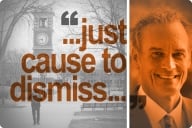You have /5 articles left.
Sign up for a free account or log in.
Jay Caspian Kang’s recent piece about presidential candidate Andrew Yang crystallized something I’ve been mulling for years.
Here is how Kang describes Yang:
Yang grew up as one of the only Asians in his hometown, enduring racial abuse and bullying, and you can still spot defense mechanisms in the pragmatic, almost dismissive way he talks about identity today. When Asians like this enter elite workplaces, where they are again surrounded by white people, they tend to use such mechanisms to great effect: They are the so-called model-minority Asians who are “like everyone else,” who don’t “play the race card,” who know how to assure others that they belong. When Yang talks about his immigrant parents, it’s in economic terms, describing the patents his father generated for GE and IBM …
This frustrates Kang and the writers and intellectuals he knows. They want Yang to get beyond what he calls the “Ebony and Ivory” approach to identity and talk about racism, power and oppression.
This dynamic is very recognizable to me. I know lots of Asian Americans in the “it’s all about my ethnic identity” category, and lots in the “why are people always talking about identity” camp.
But then the column takes a surprising turn. Kang writes:
Those of us who think, write and talk about race for a living, crafting provocative deconstructions of power and privilege, have always associated ourselves with some vaguely defined insurgency against a racist reality; regardless of where we work, whether at Harvard or at The New York Times, we locate ourselves first through our identities, and only then through our work and the financial freedoms it affords. But as I read a recent column in the Los Angeles Times about Yang’s meeting, I was struck by something. I knew almost everyone involved, including the column’s author, Frank Shyong, a dear friend. And it seemed to me that there wasn’t a single observer, especially among Asian-Americans, who wouldn’t see most of the people there as the insiders -- professionals with enviable educations who use their influence to push ideas about identity derived, in large part, from the cultural-studies programs of elite universities.
The most interesting insight, for me: that talking about identity in terms of power, privilege and oppression is no longer the woke insurgency, but rather the cultural establishment. If you talk in this way, you are not showing your subaltern stripes -- you are flashing the badge of insider dominance. The badge of power.
What are the implications of this? Kang notes at least one:
many people might be coming to see the self-appointed arbiters of racial politics, and the candidates working to satisfy them, as the establishment. Those people will be happy to see anyone willing to break from our rigid prescriptions.
But there are others as well. What if the people who speak in the language of identity politics were to recognize that their framework was the culturally dominant one? The one that helped you get into an elite college or win a coveted internship? If you spoke that language, you were working with dollars in a world of people who earned only rupees, or some other less valuable currency.
I’m not commenting on the accuracy or worth of wokeness. I’m commenting more on its increasing dominance in, as Kang notes, the world bounded by players like Harvard and The New York Times.
Would the way wokeness navigated the world have to change if the self-understanding was that it was powerful rather than marginalized? What would it do to, say, the way the word “oppressed” was used? Or to how we understand call-out culture? What if the people doing the calling out and the canceling are viewed as the dominant ones beating up on the weak ones? What if the woke of the world were viewed as the bullies on the playground, filling the other kids with fear, beating someone up every couple of days with a call-out or a cancel in case anyone needed a reminder of their brute strength?
Isn’t it all about power? And if you’re the one that has it, shouldn’t you be careful how you exercise it?





